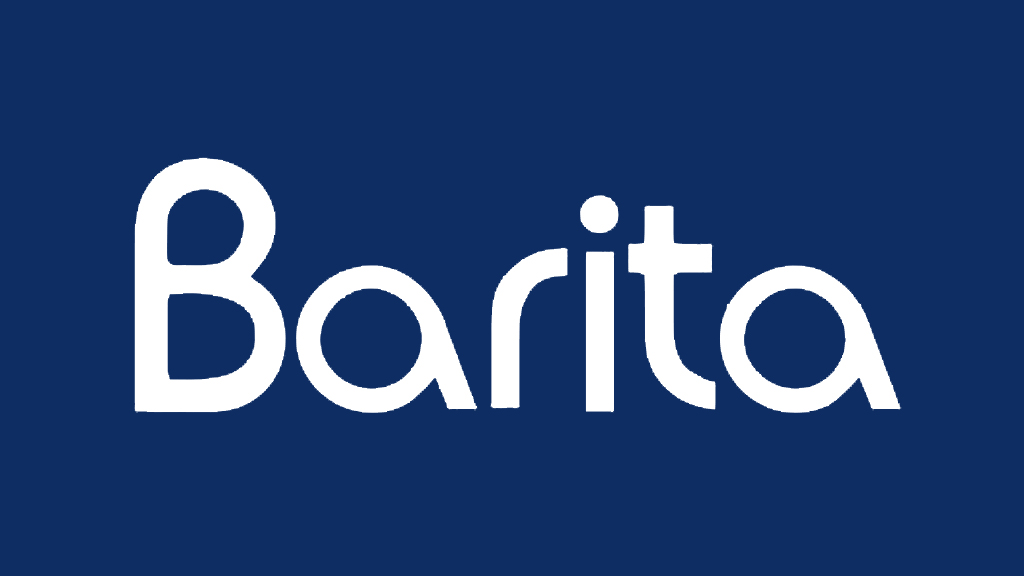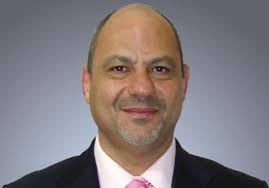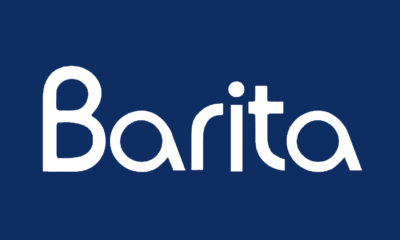 Net profit after tax (“NPAT”) for Q4 FY24 increased by 200% to $999 million, bringing NPAT for FY 2024 to $3.9 billion, 14% ahead of 2023. The improvements achieved in Q4 FY24 reflected the effects of management’s strategy to influence improvements in operating revenue through a focus on active balance sheet management, revenue diversification and expense management, in particular the management of funding costs.
Net profit after tax (“NPAT”) for Q4 FY24 increased by 200% to $999 million, bringing NPAT for FY 2024 to $3.9 billion, 14% ahead of 2023. The improvements achieved in Q4 FY24 reflected the effects of management’s strategy to influence improvements in operating revenue through a focus on active balance sheet management, revenue diversification and expense management, in particular the management of funding costs.
Revenue growth in Q4 FY24 was both robust and well-distributed, led by an exceptional performance in our Treasury, Trading and Brokerage business line, which accounted for 56% of total revenue. This improvement was supported by the continuation of the uptrend in net interest income which rose 3% to $164 million relative to the comparable quarter in financial year 2023.
Directionally, this performance aligned with expectations, buttressed by a pivotal shift in the monetary policy stance of the Bank of Jamaica and the US Federal Reserve, both of which reduced their benchmark policy rates by 25 and 50 basis points respectively, during the fourth quarter. While an additional 25 basis point cut was announced at the end of September, to come into effect at the beginning of October, the BOJ had communicated a shift in its policy posture during Q3 FY24, to which the market began to react via the downward repricing of liabilities, by extension, benefitting our Net interest income. The balance of risks points towards continued improvement in our net interest income as our interest-bearing liabilities reprice with a more frequent cadence.
The macroeconomic landscape has also evolved favourably. Domestic inflation has moderated, now averaging within the BoJ’s target range for the last 6 months, and a similar moderation has taken hold in the U.S.A., even as the Federal Reserve continues to signal a cautious, data-driven approach to future rate cuts. While these developments suggest a more stable financial environment prospectively, potential global risks remain. Slowing growth in key global markets, coupled with geopolitical uncertainties and the impending change in administration following the recent election in the US could introduce volatility; however, Barita’s diversified revenue streams and resilient business model position us well to navigate these headwinds.
Operating Performance
Barita generated net operating revenues of $10.0 billion for FY24, representing an increase of 10% or $901 million relative to FY23. The increase was broadly distributed across our various business lines, with income from the treasury, trading and brokerage and investment banking business lines being the largest contributor.
Net profit was $3.9 billion for FY24, rising 14% relative to FY23. The resulting earnings per share (“EPS”) was $3.24, up 14%.
Quarterly Performance
For the quarter ended September 30, 2024, Barita registered revenue of $3.0 billion, $1.2 billion or 72% higher than Q4 FY23, driven by a material uplift in the Treasury, Trading and Brokerage business line during the quarter. In the quarter, Barita produced NPAT of $999 million, $667 million (200%) higher than the prior year. This resulted from the aforementioned higher operating revenue, partially offset by a 26% or $346 million increase in operating expenses. Profit before taxation amounted to $1.3 billion, which was an improvement of $888 million or 207% relative to the prior year.
Shareholders’ equity closed the period at $35.5 billion, an increase of $71 million, marginally higher than the $35.4 billion outturn at the end of FY23. This was driven by an improvement of $734 million in the fair value reserve, offsetting the decline in retained earnings due to dividends declared and paid during the year. Our capital levels remain resilient, with capital adequacy of 25.45% compared to the FSC’s early warning level of 14%.
Investment Strategy & Capital Management: Our Outlook
The outlook for monetary policy continues to evolve over the course of the fourth quarter of FY24, transitioning from the tightening cycle that has dominated the past two years. Both the Bank of Jamaica (BoJ) and the Federal Reserve, along with other major Central Banks, have reduced their policy rates amidst a sustained moderation in inflation. This shift is expected to lay the groundwork for a more favourable investment environment in the coming quarters.
In the United States, recent economic indicators suggest that the cooling effect of tight monetary conditions has begun to take hold. Core PCE inflation has moderated to 2.7% from a pandemic peak of 5.7% in February 2022. Unemployment remained low at 4.1% in September but has attracted more focus from policymakers at the Federal Reserve given the upward trend since the beginning of 2024. The U.S. economy delivered solid GDP growth of 3.0% in the second quarter of 2024, exceeding expectations, but leading indicators continue to suggest potential weakness ahead. Against this backdrop, the Fed opted for a 50-basis point rate cut in September 2024, bringing the federal funds target range to 4.75%-5.00%. Markets have since priced in the expectation of further rate cuts as inflation trends towards the Fed’s 2% target.
Locally, Jamaica has seen similar progress. Annual headline inflation in Jamaica stood at 5.7% as of September 2024, back within the BoJ’s target range following the uptick in August to 6.5% due to the impact of Hurricane Beryl. Moreover, the BoJ’s recent cumulative reduction of its policy rate by 50 basis points to 6.50% during the quarter, reflects growing confidence that average inflation will remain within the target range in the near term, supported by stable domestic demand, a relatively stable exchange rate, and the continued moderation of global commodity prices. Jamaica’s economy remains resilient, albeit with moderating growth in key goods-producing and service sectors.
Looking ahead, we anticipate a further shift toward more expansionary monetary conditions, both locally and globally, which will likely enhance our ability to optimize our balance sheet and improve the net interest margin. As funding costs stabilize and earning assets continue to reprice upward, we expect to see a positive impact on our financial performance. Additionally, more favourable market conditions should provide increased opportunities for trading gains, and we foresee a gradual acceleration in deal-making activity, further boosting revenue growth.
However, we remain cognizant of the risks that persist in the global macroeconomic environment. Slowing growth in key global markets, coupled with geopolitical uncertainties and the impending election in the world’s largest economy, may introduce volatility that could impact our investment activities. Despite these headwinds, we continue to prioritize the diversification of our revenue streams, particularly through our alternative investment platform, which includes our real estate ventures that are poised to deliver significant returns in the medium to long term.
In this context, prudent capital management remains central to our strategy. We will continue to ensure strict compliance with regulatory requirements while maintaining the flexibility to capitalize on emerging opportunities. Through these efforts, we are confident in our ability to navigate the evolving economic landscape and deliver sustained value to our shareholders.
Mark Myers, Chairman Barita Investments Limited (“Barita” or “the Group”)
For More Information CLICK HERE


 Businessuite Markets2 weeks ago
Businessuite Markets2 weeks ago
 Businessuite News244 weeks ago
Businessuite News244 weeks ago
 Businessuite Markets4 weeks ago
Businessuite Markets4 weeks ago
 Logistics & Transportation4 weeks ago
Logistics & Transportation4 weeks ago
 Businessuite Markets4 weeks ago
Businessuite Markets4 weeks ago
 Leadership Conversations3 weeks ago
Leadership Conversations3 weeks ago
 Businessuite Markets4 weeks ago
Businessuite Markets4 weeks ago
 Businessuite News244 weeks ago
Businessuite News244 weeks ago

 Net profit after tax (“NPAT”) for Q4 FY24 increased by 200% to $999 million, bringing NPAT for FY 2024 to $3.9 billion, 14% ahead of 2023. The improvements achieved in Q4 FY24 reflected the effects of management’s strategy to influence improvements in operating revenue through a focus on active balance sheet management, revenue diversification and expense management, in particular the management of funding costs.
Net profit after tax (“NPAT”) for Q4 FY24 increased by 200% to $999 million, bringing NPAT for FY 2024 to $3.9 billion, 14% ahead of 2023. The improvements achieved in Q4 FY24 reflected the effects of management’s strategy to influence improvements in operating revenue through a focus on active balance sheet management, revenue diversification and expense management, in particular the management of funding costs.






 The second quarter of the financial year unfolded within a still recovering economic environment. Jamaica experienced two consecutive quarters of economic contraction prior to this period, with the latest data from the Planning Institute of Jamaica (PIOJ) indicating a return to modest growth.
The second quarter of the financial year unfolded within a still recovering economic environment. Jamaica experienced two consecutive quarters of economic contraction prior to this period, with the latest data from the Planning Institute of Jamaica (PIOJ) indicating a return to modest growth.
 For the period under review, the Group’s consolidated balance sheet remained sound with a stable cash position, providing the financial flexibility to support ongoing operations and strategic initiatives.
For the period under review, the Group’s consolidated balance sheet remained sound with a stable cash position, providing the financial flexibility to support ongoing operations and strategic initiatives.

 Scotia Group reports net income of $9.2 billion for the six months ended April 30, 2025, representing an increase of $665.6 million or 7.8% over the prior year. Net income for the quarter of $5 billion reflected an increase of $797.9 million or 19% over the previous quarter. The Group’s asset base grew by $87 billion or 12.9% to $763.5 billion as at April 2025 and was underpinned by the excellent performance of our loan and investment portfolios.
Scotia Group reports net income of $9.2 billion for the six months ended April 30, 2025, representing an increase of $665.6 million or 7.8% over the prior year. Net income for the quarter of $5 billion reflected an increase of $797.9 million or 19% over the previous quarter. The Group’s asset base grew by $87 billion or 12.9% to $763.5 billion as at April 2025 and was underpinned by the excellent performance of our loan and investment portfolios.



